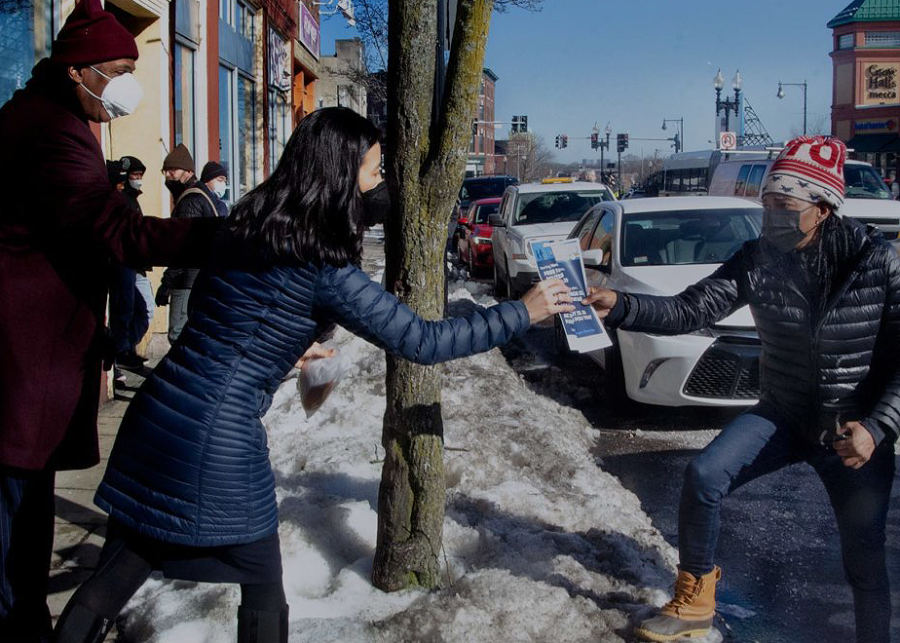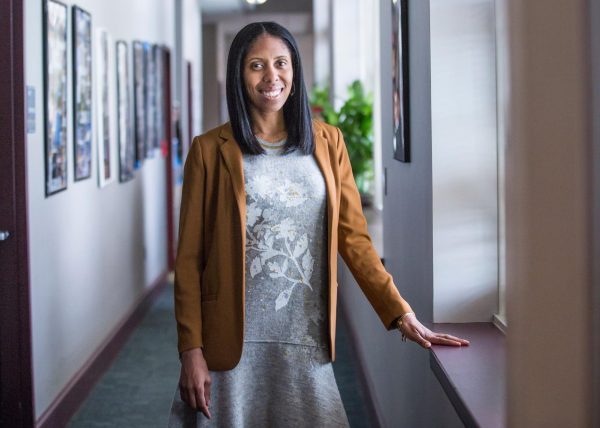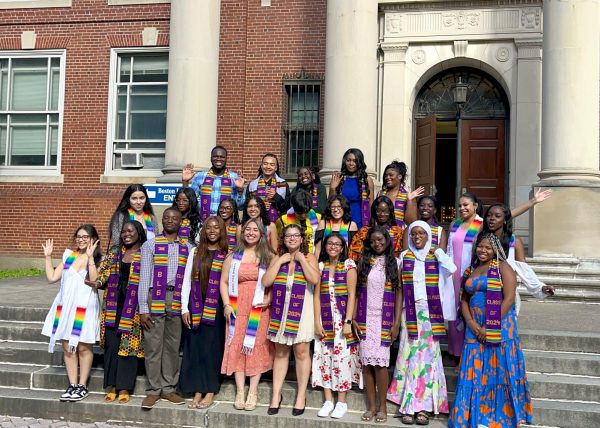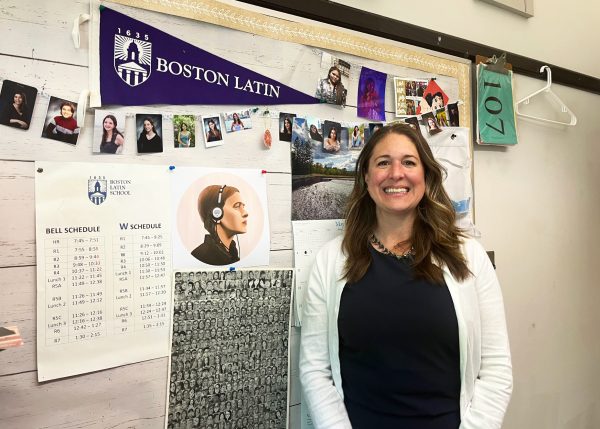Mayor Michelle Wu: 100-Day Check-In
Since being sworn in just over 100 days ago, Boston Mayor Michelle Wu has carried out her policy agenda, addressing issues ranging from free transportation to affordable housing.
Wu’s first executive order in office requires the City of Boston to divest from fossil fuel, tobacco and private prison industries by the end of 2025. The order is part of Wu’s commitment to reducing carbon emissions as part of her City Green New Deal. Thus far, Boston has divested 65 million dollars in city investments from companies that source more than 15 percent of production from global warming contributors.
Adina Habib (II), an officer of Boston Latin School Women in Politics, says, “I honestly think that it is necessary. […] It’s something that we should be investing in, and obviously 65 million dollars is not a small amount of money, but putting that investment toward renewable energy is extremely important for the future of not just Boston, but the whole entire world.”
To combat the continuing spread of COVID-19, Mayor Wu implemented a vaccine mandate in January, which required city employees and people in indoor spaces, such as restaurants and gyms, to be vaccinated.
After the mandate was announced, many anti-vaccine protesters gathered at Wu’s house, occasionally early in the morning. Despite these protests, there was a noticeable increase in vaccination rates days after the mandate took effect. In February, however, a judge blocked the employee mandate, which is now being appealed by the Wu administration.
Also in February, Wu decided to lift the vaccine mandate for businesses. Wu identified three data points on which to base rolling back the vaccine mandate, all situated on a seven-day average. Those metrics include a community positivity rate below five percent, less than 95 percent of Intensive Care Unit beds occupied at Boston hospitals and fewer than 200 COVID-19 related hospitalizations per day.
Boston has already met two of the requirements, and data from wastewater in Boston shows that virus levels are back to where they were before the Omicron variant.
On February 9, Wu announced a fare-free Massachusetts Bay Transportation Authority bus program on routes 23, 28 and 29. It began on March 1, 2022 and will last two years. The Wu administration selected the routes based on their popularity and rider diversity in order to support and boost ridership.
In the coming years, Wu plans to transition to a larger scale of free public transportation. “We need it to be reliable [and] convenient to get people to where they need to go, and it has to be affordable,” Wu explains in an interview with Boston 25 News.
Wu also invested 40 million dollars into over 700 housing units all around Boston, provided by the Mayor’s Office of Housing, the Neighborhood Housing Trust and the Community Preservation Fund. Income-restricted housing units were prioritized to help accommodate those who needed it, such as seniors and families.
Mayor’s Youth Council Ambassador Zach Chen (III) reflects, “I think the housing policy will make it cheaper for Bostonians to live, allowing them to free up expenses and lessen the burden on their shoulders.”
Wu is the first woman and person of color to be elected as the mayor of Boston. Prior to her mayoral campaign, she served as the president of the Boston City Council after seven years’ experience as a councilor. Her campaign platform appealed to a wide range of voters, which led to success in her campaign.
Chen concludes, “She’s used her voice to stand for her beliefs and to empower people around Boston to help join that process. And even with a lot of barriers, like hate on social media, she’s stood strong and progressed forward.”






